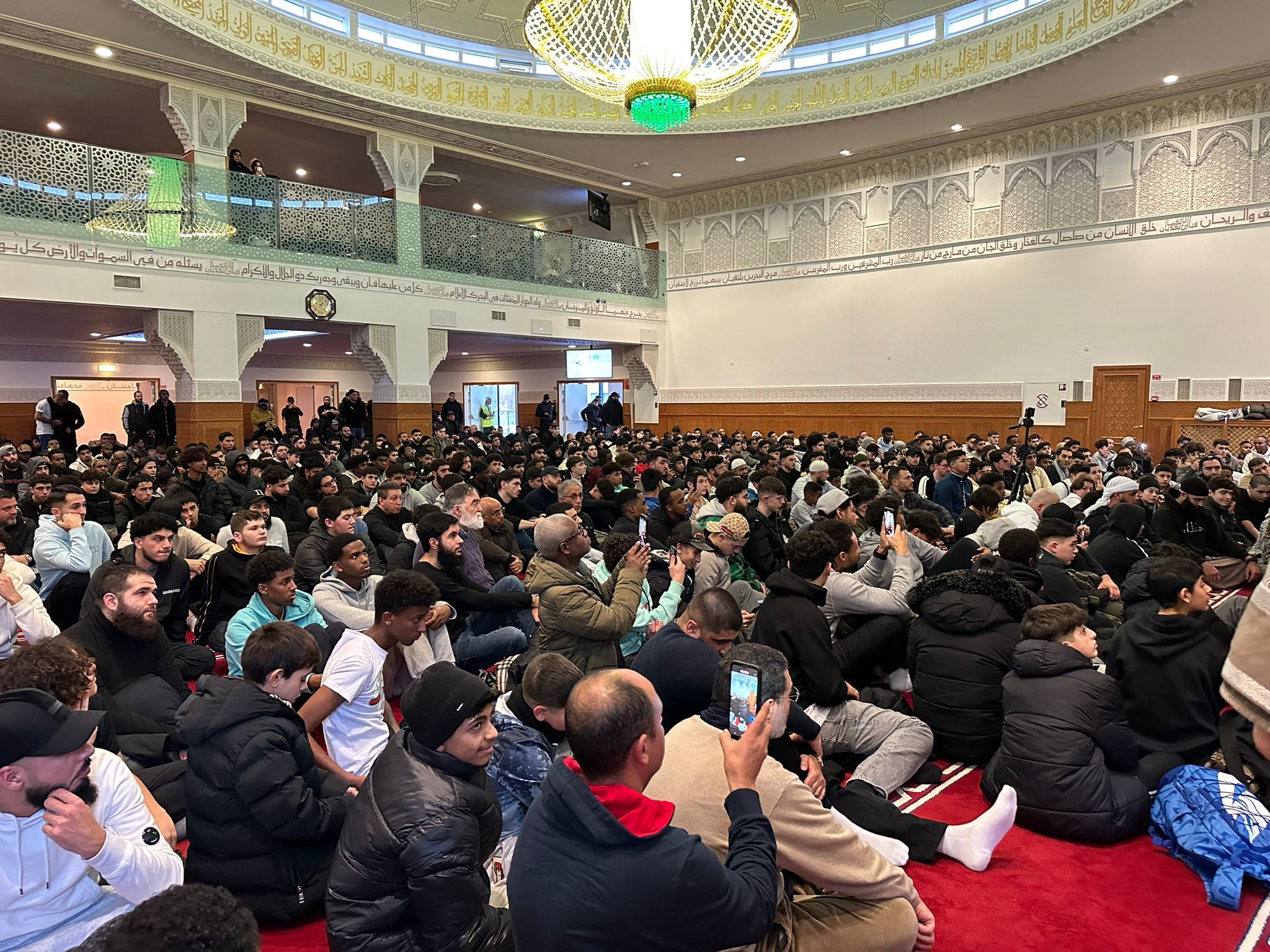For hundreds of millions of Muslims across the globe, Ramadan is a sacred time of the year and an opportunity to attest their dedication to the Deen – the religion of Islam.
Ramadan holds immense significance for Muslims as the month when the Quran was revealed to the prophet Muhammad.
During the month of Ramadan, Muslims abstain from eating and drinking from sunrise to sunset. It is a time that promotes empathy towards the less fortunate, strengthens spirituality and builds resilience and physical discipline.
Ramadan is also a time of joy, excitement and closeness with loved ones. Families rise together before dawn to share breakfast and gather after sunset to enjoy festive Iftar meals after a day of shared endurance.
In Denmark, public perceptions and attitudes towards this Islamic holy month have shifted over time and are often contradictory.
Although the population of Muslims in Denmark is relatively small compared with those in countries like France or the UK, public observance of Islam is often a headline topic in Danish politics, where it has become a discordant political issue.
Since the September 11 terror attack on the United States in 2001, the populist political discourse around Islam in Denmark has veered towards Islamophobic rhetoric.
In the immediate aftermath, for example, the leader of the far-right Dansk Folkeparti, Pia Kjærsgaard, declared in Parliament that “there is only one civilization, and it is ours … and [Muslims] cannot wait to get their paradise in heaven”.
In the decades since, the idea that Islam is fundamentally opposed to Western values has been adopted as a tenet of right-wing policy-making. Far-right political discourse draws especially on extreme manifestations of Islam such as the Taliban or honour killing to generate fear. In EU election campaigns, stoking fear is used to propagate an ‘us and them’ mindset, which can be capitalised on to scoop up votes.
This EU-wide language of fear fuels negative attitudes to Islam in Denmark. These attitudes mostly appear in conversations on culture, integration, and national security, and ultimately generate a broad feeling that Muslims pose a threat to Danes on a community level.
Indeed, the tone of Danish politics in recent years has made it clear that Muslim faith and Danish identity are mutually exclusive.
When, in a parliamentary debate, a politician like Sored Krarup compares the Quran to Hitler’s Mein Kampf and the Islamic Hijab to the use of the Nazi swastika, it makes it uncomfortable for a Danish Muslim to identify with these Islamic symbols even if he or she believes in them.
This politicisation of identity and belief pushes Muslims in Denmark further to the sidelines. In such a climate, the observation of personal or community Islamic rituals such as praying, fasting, hijab, halal meat and Ramadan becomes politicised.
For the individual Danish Muslim, it forces into conflict two core elements of their identity: being Danish and following Islam. It is a Catch-22 where to be recognized as more Danish, they must be recognized as ‘less Muslim’.
Denmark’s official National Integration Barometer, produced by the Ministry for Immigration and Integration Ministry, measures progress towards the country’s integration goals. On the individual level, it seems that a parallel, intangible ‘barometer of Danishness’ exists in the public consciousness – and the more Muslims divest themselves of outward manifestations of Islam, the higher they score.
Danish Muslims have two choices. They can raise their voices in defence of their beliefs and visibly manifest their observances such as fasting during Ramadan, praying in the mosque or wearing Islamic clothes, long beards or the hijab, however, in doing so they seal their fate of existing in marginalised pockets of society.
The alternative is to internalise the politicised debate and view their religious observances like fasting through a western lens as primitive and backward and choose to confirm their western identities by distancing themselves from the ‘otherness’ of their own religion.
This schism in Danish Muslim identity formation serves Danish far-right political interests.
With Muslims preoccupied by this dilemma, they will not focus on demanding more inclusive religious rights; an outcome which is strongly discouraged based on the perceived risk of dilution of Danish culture and values.
Denmark is today at a crossroads when it comes to the inclusion of the Muslims’ faith observances. Assimilation and integration of Muslims into Danish culture and society will not come from an evolved version of Islam – but it can come from an evolved attitude to Islam.
There is space for Denmark to become more accommodating and tolerant of public manifestations of the Islamic faith, like Ramadan.
By accepting that under 5 percent of the population have different cultural and religious traditions and by celebrating this diversity, Denmark can greatly enhance the sense of belonging of Danish Muslims.
Embracing the open practice of minority religions in Denmark can foster trust amongst different communities. For Danish Muslims, it can help to turn negative attitudes, heal the conflict of faith and national identity, and promote a feeling of belonging in a more inclusive and balanced society.















